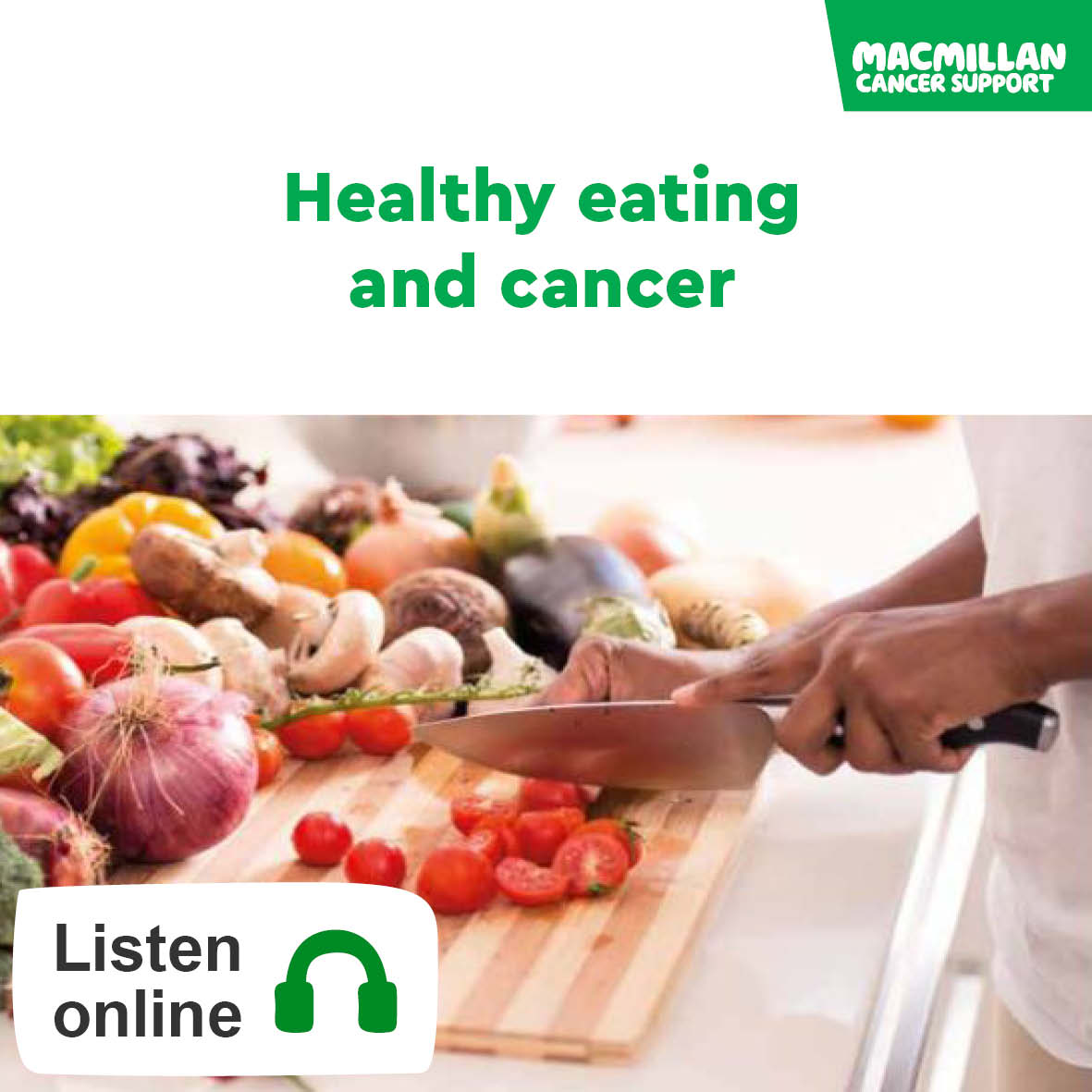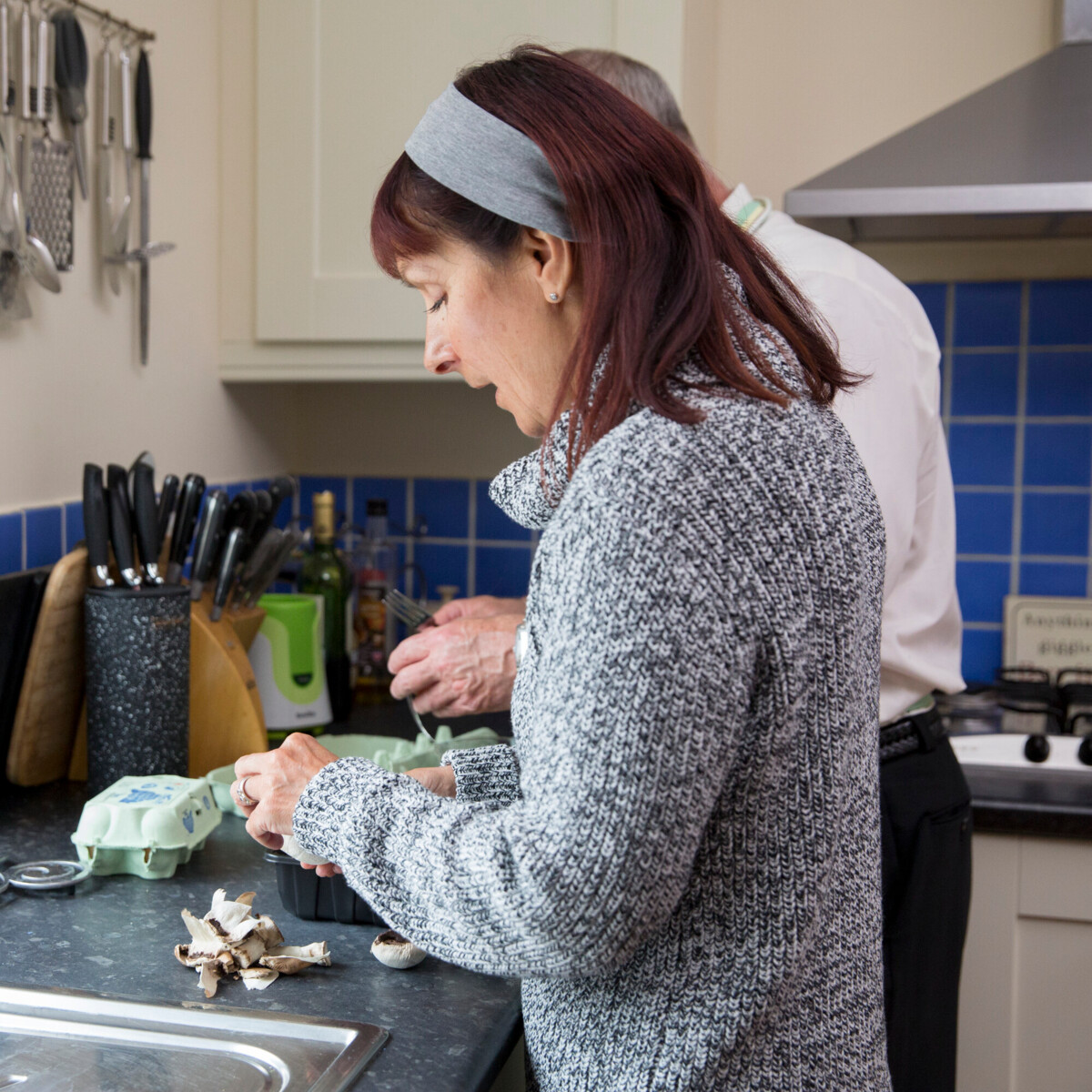Weight-loss injections and cancer: your questions answered
At a glance
- There is no clear evidence that weight-loss injections reduce the risk of cancer.
- During cancer treatment, maintaining strength and energy is often more important than losing weight. Your doctor can help you find the right balance.
- Always talk to your cancer team before starting or continuing weight-loss injections.
Introduction to weight‑loss injections
There is currently a high level of interest in weight-loss medications, particularly drugs called GLP-1 receptor agonists (glucagon-like peptide-1). Common brand names include Ozempic, Wegovy, and Mounjaro. They work by reducing appetite and helping you feel fuller for longer.
If you are living with cancer, you may have questions about weight and treatment. You may be thinking about weight loss injections, or already be taking them. This information is for anyone affected by cancer, whether you are newly diagnosed, having treatment, or recovering after treatment.
These drugs are now more widely prescribed through the NHS and private clinics. Some people are already taking them when they are diagnosed with or during their treatment. If this applies to you, your cancer team can help you think through what is most appropriate for you.
Can weight-loss injections reduce my risk of cancer?
There is currently no evidence that weight-loss injections reduce the risk of cancer.
Maintaining a healthy weight is one of the most important things for your overall health. Around 40% of cancers could be prevented through lifestyle factors, including diet, weight, and physical activity.
While weight-loss injections can help with weight management, some studies are still ongoing and we do not yet know whether they affect cancer risk in the long term.
If you are worried about your weight and cancer risk, injections are not the only option. Gentle activity or small changes to what you eat can help. Your healthcare team can advise you on what is right for you.
Can I use weight-loss injections during cancer treatment?
If you are diagnosed with cancer while taking these medications, or are thinking about starting them, it is important to speak to your healthcare team. They can check if the injections can be used with your cancer treatment.
Why does strength matter during cancer treatment?
During cancer treatment, maintaining strength, muscle and energy is usually more important than losing weight. Losing weight quickly can make it harder for your body to cope with treatment or recover from surgery.
There are concerns that weight loss injections may contribute to:
- loss of muscle mass. (Sometimes called sarcopenia),
- fatigue and
- not getting enough nutrition.
This is particularly important if you are:
- having active cancer treatment,
- older and more likely to lose muscle or
- already losing weight without trying. Cancer-related weight loss is sometimes called cachexia.
If you are losing weight without meaning to, tell your healthcare team. They can help find out the cause and offer support.
How can I lose weight in a healthy way?
Making lifestyle changes is not always easy, especially when coping with cancer and treatment.
You may find it helpful to make gradual changes to your diet when you feel ready, and at a budget that works for you.
Before making big changes to your diet, it can help to talk to a dietitian, your GP or a specialist nurse. This may also be useful if you have special dietary requirements or medical needs. A dietitian can advise you and help you make changes. They can also support you with any other dietary problems you might have during or after cancer treatment.
Could weight-loss injections affect my other medicines?
Research in this area is still developing, but there are things to be aware of. These injections slow down how quickly your stomach empties. This can affect how your body takes in other medicines, including oral chemotherapy.
Surgery and anaesthetic
Because these drugs slow digestion, food or liquid can stay in the stomach longer than usual.
This can increase the risk of breathing stomach contents into the lungs during surgery under general anaesthetic.
If you are having surgery or a procedure, tell your surgical team and anaesthetist if you are taking these injections, they may advise you to pause the medication before surgery.
Oral contraception
Weight-loss injections can make the oral contraceptive pill less effective. Avoiding pregnancy is important during many cancer treatments, as some cancer drugs can harm a developing baby.
If there is any chance you could become pregnant, speak to your healthcare team about the best contraception options for you during treatment.
What are the potential side effects?
Weight-loss injection side effects can include nausea, vomiting, indigestion, and stomach pain.
Most people do not get side effects, and some improve over time. Get advice if side effects are severe or do not improve.
If side effects are affecting your ability to eat or take your cancer treatment, let your cancer team know.
Can weight-loss injections cause cancer?
Like all medicines, weight‑loss injections have some risks you should be aware of.
Thyroid cancer risk
Studies in animals showed a higher risk of thyroid tumours. This has not been seen in people for most types of thyroid cancer. These injections are usually not recommended if you or a close family member has had a rare type of thyroid cancer called medullary thyroid carcinoma (MTC).
Pancreatitis
There is a small risk of severe inflammation of the pancreas, known as pancreatitis. This can be serious, so it is important to know the signs
If you have severe tummy pain that does not go away, especially if it spreads to your back or you feel very unwell, call 999 or go to your nearest A&E straight away.
How are weight-loss injections prescribed?
Weight-loss injections can be prescribed in different ways:
- NHS – usually through specialist weight management services, and only if you meet strict criteria.
- Private clinics – prescriptions may be easier to access, but the same risks and safety advice apply.
If you are living with cancer, do not start these medicines without advice from your cancer team, even if you can access them privately.
Look out for fake medicines: Only use drugs prescribed through a regulated service. There have been reports of fake versions of these injections being sold online, which have caused serious side effects. If in doubt, speak to your cancer team or pharmacist.
Where can I get support?
We have information to help you eat well and look after yourself, with practical advice to support your health and wellbeing during and after cancer. Find out more about healthy eating and cancer and the impact cancer can have on everyday life.
You can also get support from others in similar situations through the Macmillan Online Community, a free and supportive space to share experiences.
If you have any practical or clinical questions, you can contact the Macmillan Support Line on 0808 808 00 00, 7 days a week, 8am to 8pm.
Resources
About our information
This information has been written by Dr Owen Carter, Macmillan National Clinical Advisor and edited by Ros Ayres in Macmillan's Digital Content team. .
Learn more about how we produce our information and about our Digital Content Editors.
Read more
-
Blogs 04 Apr 2023In this article we highlight some diet and cancer risk claims you may have seen on TV or in the news and give you more of the facts behind these headlines.
-
Blogs 15 Feb 2023The cost of food and the weekly shop are continuing to rise. Recent events mean the price of certain food items such as salad and fruit have gone up or there's a shortage in the shops. This can make...
-
Blogs 21 Feb 2025We hope this information can help answer some questions if you, or someone you know, is having treatment for cancer during Ramadan.







